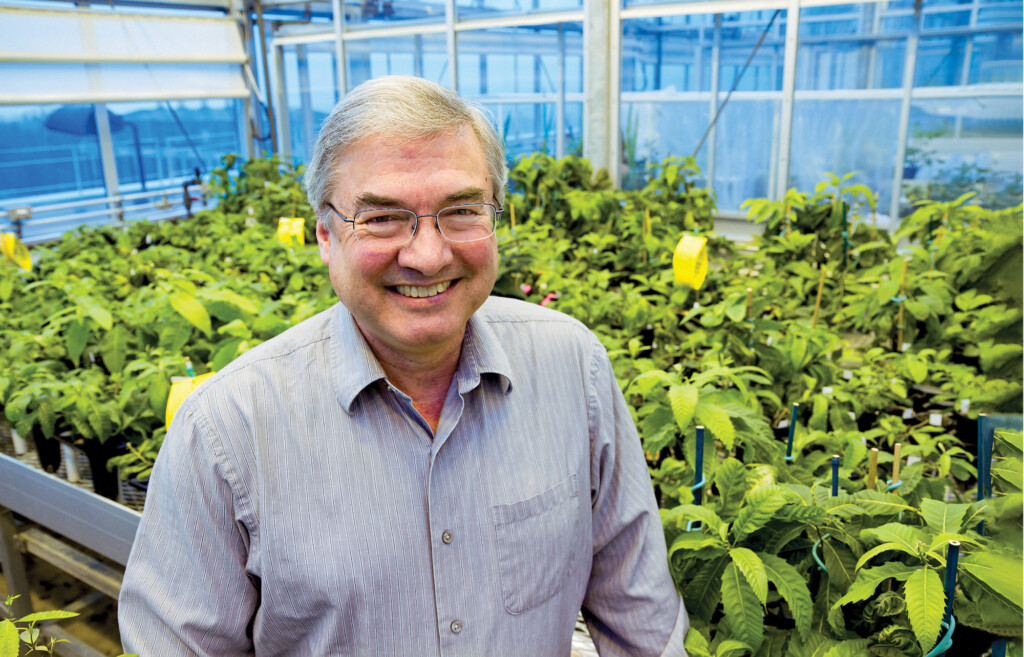ESF has received its largest-ever charitable gift, $3.2 million, to support one of the College’s most impactful research projects — the restoration of the American chestnut tree.
The gift from the Templeton World Charity Foundation, Inc., will support a full three years of research and restoration work.
“This is truly a transformational gift,” said Dana Piwinski ’80, senior director of major gifts in the ESF Office of Development. “It means that at this critical stage, with the project undergoing federal review, the researchers know they have the support they need to continue work with a full staff.”
Dr. William Powell, who heads the ESF American Chestnut Research and Restoration Project, said, “The Templeton support will allow us to ‘kick-start’ the restoration of the magnificent American chestnut trees and help improve the health of the forest from which they were lost.”
The Templeton World Charity funds scientific breakthroughs and development of practical tools relating to the search for meaning, purpose and truth. The charity describes itself as serving as “a global philanthropic catalyst for discoveries relating to Big Questions of life and the universe, in areas of science, theology, philosophy, and human society.”
The gift will support numerous aspects of the project, including completion of regulatory review; establishment of production orchards for public distribution of the blight-tolerant trees; production of transgenic trees for use in larger-scale forest restoration; establishment of small educational plantings at botanical gardens, arboretums, parks, historical sites and other public venues; the planting of a demonstration/research restoration forest focused on public education and outreach; development of ecosystem and agricultural restoration protocols; and, finally, the start of distribution to the public.
Earlier this year, the research team submitted to federal agencies a 286-page petition that lays out the case for why officials should grant regulatory approval for public distribution of genetically engineered, blight-tolerant American chestnut trees that were developed at ESF. Powell said he expects the petition to be accepted for full review this winter. The request must be approved by the U.S. Food and Drug Administration, Environmental Protection Agency and U.S. Department of Agriculture. Because the chestnut’s range extends into part of southern Canada, approval will also be sought from the Canadian Food Inspection Agency.
Although genetic engineering has been approved in use for agricultural crops, this is the first time scientists have sought approval to use the technique to restore a native tree species.
The ESF scientists add a single gene from wheat to the tree’s genome; the additional gene allows the tree to detoxify the oxalic acid produced by the invasive fungus.
For the last several years, the chestnut project at ESF has been supported primarily by philanthropic funds.
Claire B. Dunn is a freelance science writer in the Syracuse area.




